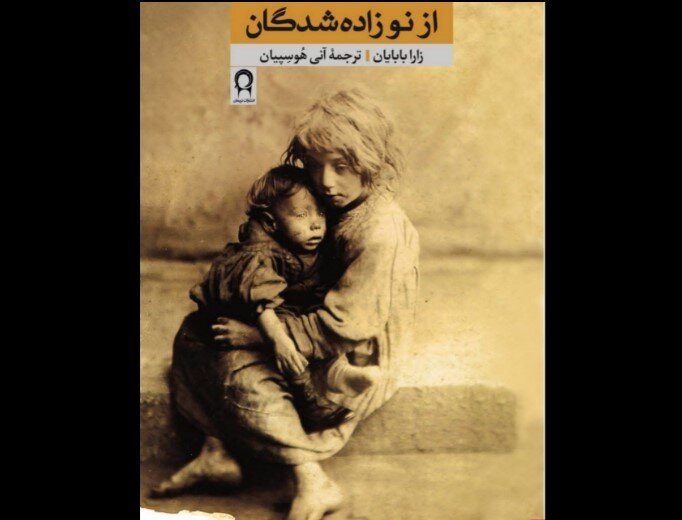The Reborn published in Persian
“The Reborn” published in Persian
TEHRAN- “The Reborn”, a novel by Armenian Author Zara Babayan has recently been published in Persian.

Ani Hovsepian is the translator of the book published by Nariman Publications in Tehran.
Set in the framework of magical realism yet grounded in reality, the book narrates the fate of a family that survives during the Armenian genocide perpetrated by the Ottoman government.
The English version of the book is being released in the U.S. simultaneously with its Persian translation.
Zara Babayan, a graduate in Armenian language and literature from the National University of Armenia, was born in Yerevan. In 1993, she immigrated to Switzerland to pursue her studies in psychology, and her first book was published in 2012, earning her the Best Book of the Year award that same year.
The image on the front cover of the book is a work by English photographer Julia Margaret Cameron, preserved from the Armenian genocide, and currently housed in the Armenian Genocide Museum.
The Armenian Genocide refers to the systematic mass extermination of the Armenian population by the Ottoman Empire during World War I, particularly between 1915 and 1923.
An estimated 1.5 million Armenians were killed, and countless others were forcibly deported from their ancestral lands. This tragic event unfolded amid the backdrop of a crumbling empire and escalating ethnic tensions.
Armed forces, along with local authorities, carried out a series of atrocities including mass shootings, death marches through the Syrian desert, and the use of concentration camps. The intent was clear: to eliminate the Armenian presence in the region and to erase their cultural heritage.
Despite extensive documentation and eyewitness accounts, recognition of the Armenian Genocide has faced significant political and historical resistance, particularly from Turkey, the successor state to the Ottoman Empire.
While numerous countries and institutions acknowledge this atrocity, others remain hesitant due to diplomatic tensions and geopolitical considerations. The genocide significantly shaped Armenian identity and diaspora, leading to a collective memory steeped in both resilience and tragedy. Today, efforts continue to seek justice, international recognition, and education about the Armenian Genocide to ensure that such horrors are never repeated.
SAB/
source: tehrantimes.com